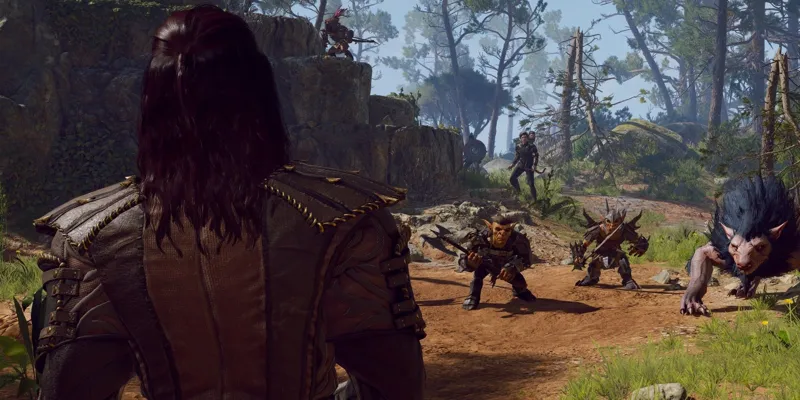Baldur's Gate 3 adheres closely to its TTRPG roots of D&D 5e, introducing unique mechanics governing spellcasting, rest periods, resource management, and more. While many of these alterations can be integrated into the original game through customized rules, there is a particular feature of Baldur's Gate 3 that presents compatibility issues.
One of the standout aspects of Baldur's Gate 3 is its diverse and compelling array of characters. The NPCs and companions in the game have not only gained popularity in online circles but have also served as a source of inspiration for numerous Dungeon Masters and players. The blend of serious themes, deep character development, occasional humor, and epic moments makes the game's cast especially attractive to TTRPG enthusiasts.
The Complex Romance System in Baldur's Gate 3 Doesn't Suit D&D and Traditional TTRPGs
Another reason behind the memorable nature of the game's characters is the intricate romance system embedded within Baldur's Gate 3. This system offers extensive romantic options, featuring 14 choices and hours of engaging content. The broad spectrum of inclusive and enjoyable selections allows players to forge deeper connections with their companions and explore various romantic narratives. However, such a detailed romance mechanic not only diverges from the TTRPG origins of Baldur's Gate 3 but is also often viewed unfavorably. While themes of romance and intimacy exist in the realm of tabletop RPGs, they can sometimes lead to uncomfortable or unwelcome situations.
Navigating Romance Challenges in TTRPGs
Despite the allure of incorporating romance and intimate content into gameplay, such elements can quickly become uncomfortable in real-life role-playing scenarios. Unlike interactions with NPCs in video games, engaging in romantic role-play within a group of friends can evoke feelings of awkwardness and self-consciousness. The lack of explicit guidelines in D&D 5e for managing sudden romantic developments further complicates the inclusion of romance in tabletop sessions.
The unpredictability of romantic interactions has contributed to the contentious nature of romance in TTRPGs. The blurred line between role-playing performances and genuine emotions can create confusion and discomfort, potentially leading to inappropriate advances or misunderstandings. To address these concerns, game facilitators in systems like D&D are encouraged to conduct 'session zero' discussions to establish boundaries and ensure all participants are on the same page.
Romance Portrayals in Live-Play Shows Versus Traditional Tables
Live-play shows such as Critical Role have popularized the inclusion of romantic storylines in TTRPG sessions since 2015, attracting a broader audience to the hobby. While these shows may showcase romantic interactions between players, it's essential for newcomers to recognize that such portrayals may differ from typical tabletop experiences. These productions often involve professional actors well-versed in safety protocols and interpersonal boundaries, a level of expertise not always present in standard gaming groups. Engaging in romantic narratives in D&D requires careful planning and mutual consent among all participants.
Leveraging Third-Party Resources for TTRPG Romance
While official 5e materials may offer limited guidance on incorporating romance or intimacy into gameplay, supplementary resources from third-party creators within the D&D community can provide valuable support for Dungeon Masters and players interested in exploring these themes respectfully. Tools like the TTRPG Safety Toolkit and the MCDM Tabletop Safety Toolkit offer practical advice for maintaining a comfortable gaming environment. Additionally, alternative systems like the two-player game Star Crossed present viable options for exploring romantic dynamics in a tabletop setting, especially for smaller groups seeking focused storytelling experiences.

